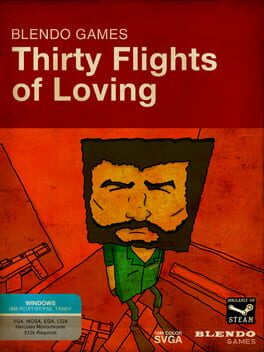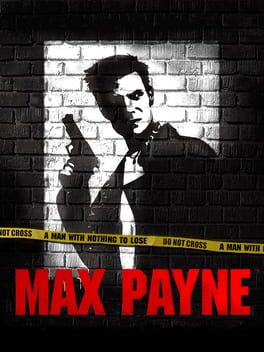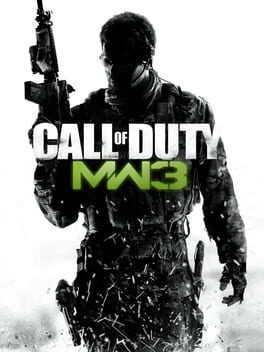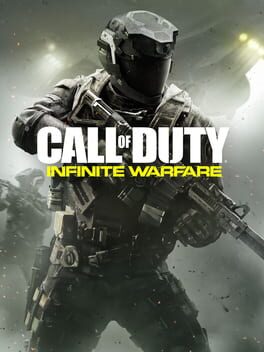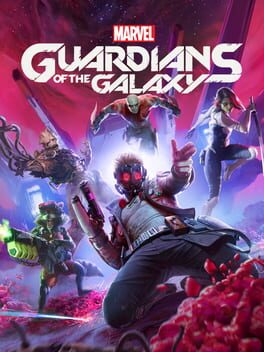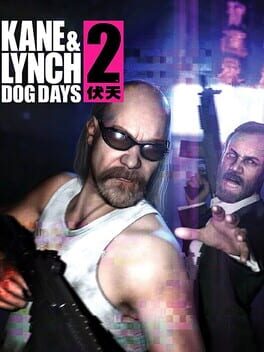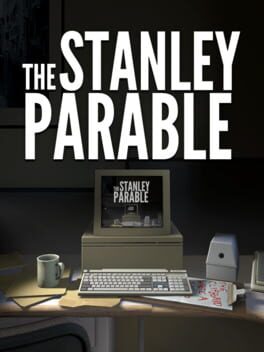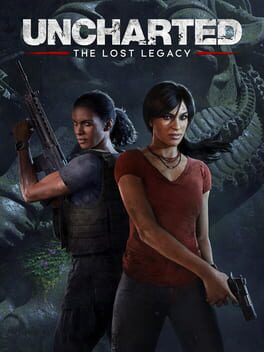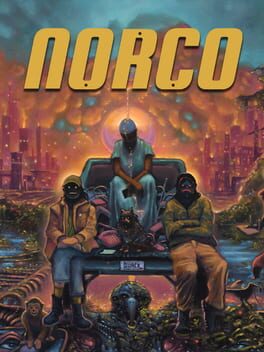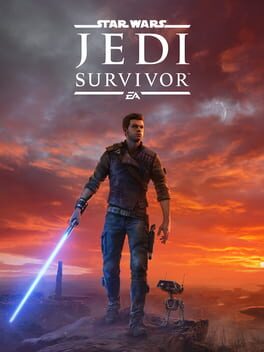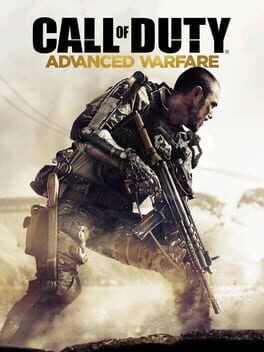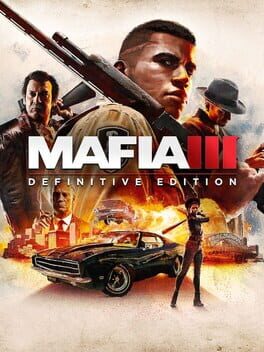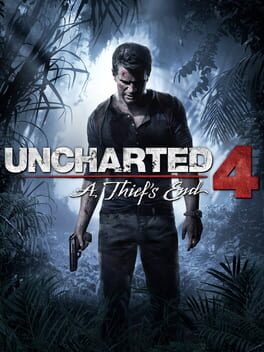zachmaycry
the flawed masterpiece implies the existence of a flawless masterpiece which just seems silly. like art can't be perfect shut up. the trick is look around the flaws and accept the things - and the people - you love for what they are not what they aren't.
this is pretty goddamn flawless though, ngl. the cut to the title card? with that spy music? oh boy. that was the coolest thing i've seen all year.
this is pretty goddamn flawless though, ngl. the cut to the title card? with that spy music? oh boy. that was the coolest thing i've seen all year.
2001
I wish I had something more substantial to say about Max Payne. It's been a week since i finished it. I don't think it was my fave in the series. But as the original, I gotta give it a lot of love. This bizarre pop culture stew, made from chunks of The Matrix, Raymond Chandler, Twin Peaks, John Woo and bad New York accents. It's a combo only Remedy still solely provide. But I think what's been lost over the years is the palpable atmosphere the series has when it's trading in street level crime. The alleys and dirty hallways of dilapidated apartment buildings and hotels. That sense that the snow you're stepping in is covered in piss. The Max Payne games always tend to escalated upwards, until you're having manic shootouts in expensive, lavish high rise buildings, fighting mercenary goons. But few games ever capture and relish in the dirt the way Max Payne games do. Video games so desperately lack Raymond Chandler and John Woo inspirations nowadays too. Max Payne is a reminder that not every game with a gun has to be about aliens or shooting people of colour in various warzones. Shame the memo didn't go out.
Empty spectacle. Pure shit. No ideas. And I know most of MW2 is just Michael Bay the game, but at least that game went for broke, 100,000 kms per hour hurtling toward the sun. This is a game even bored with itself. Worst in the series. Even when the series is offensively bad at least it has a charge to it. This has nothing going for it. It might as well be a Battlefield game.
Wars of the future won't be fought on land or at sea. They'll be fought in space, or possibly on top of a large mountain. In any case, much of the actual fighting will be done by robots.
Kind of the platonic ideal Call of Duty has been striving for after all these years: endless, apolitical, pure nationalist warfare. Stripped of real world ideology. It's just endless war as far as the eye can see. It's what the US Navy dreams of when they hear the words Star Wars. Men and women alike, from all over the Earth, fighting robots in order to stop some space Jon Snow guy.
And it works. It's utterly shameless about much it just loves war. And Michael Bay esque explosions, which in this game are happening constantly all around you. The whole game is a 5 hour walking tour of explosion city. It's great. It dazzles.
The most human character in this is a robot (styled personality wise after the one from Interstellar).
Kind of the platonic ideal Call of Duty has been striving for after all these years: endless, apolitical, pure nationalist warfare. Stripped of real world ideology. It's just endless war as far as the eye can see. It's what the US Navy dreams of when they hear the words Star Wars. Men and women alike, from all over the Earth, fighting robots in order to stop some space Jon Snow guy.
And it works. It's utterly shameless about much it just loves war. And Michael Bay esque explosions, which in this game are happening constantly all around you. The whole game is a 5 hour walking tour of explosion city. It's great. It dazzles.
The most human character in this is a robot (styled personality wise after the one from Interstellar).
Derivative of Uncharted, Mass Effect and Control. But derivative doesn't have to be a dirty word. Familiarity is comforting. This could have been a total disaster. In a weird way it feels like one of the rare AAA PS4-era games that was left alone by the publisher to be its own thing. In this day and age that means a game that doesn't take a lot of chances. Okay, fine. But I think like Jedi Fallen Order, and completely unlike Marvel's Avengers, this is a big, licensed Disney game that exudes some form of personality and spirit.
I enjoy that this game unlike the two Guardians of the Galaxy really plays into what desperate losers these guys are. It makes for the cliched moments when they come together as a team and bond feel more earned. I love the dialogue in this game. Not the actual dialogue itself, mind you. Just how much of it there is and how well it's scattered across the game. When you wander around as Peter to search for a collectible, Gamora or Rocket will ask what the fuck you're doing and if you're lost. Peter will say he's scouting. Small moments but they add up to a sense of place and character, and not in a blatantly self-referential meta way. The characters, at least for the first half, are almost always chatting, bantering, bickering, mostly over each other. It can feel like a Robert Altman film at times with just how much overlapping dialogue there is, or like an episode of Always Sunny.
I dig it. Unspectacular but in a world of corporate art it's nice to get a single player game that's primarily story centric and linear and just left to be its own thing. I'll take it as a small miracle.
I enjoy that this game unlike the two Guardians of the Galaxy really plays into what desperate losers these guys are. It makes for the cliched moments when they come together as a team and bond feel more earned. I love the dialogue in this game. Not the actual dialogue itself, mind you. Just how much of it there is and how well it's scattered across the game. When you wander around as Peter to search for a collectible, Gamora or Rocket will ask what the fuck you're doing and if you're lost. Peter will say he's scouting. Small moments but they add up to a sense of place and character, and not in a blatantly self-referential meta way. The characters, at least for the first half, are almost always chatting, bantering, bickering, mostly over each other. It can feel like a Robert Altman film at times with just how much overlapping dialogue there is, or like an episode of Always Sunny.
I dig it. Unspectacular but in a world of corporate art it's nice to get a single player game that's primarily story centric and linear and just left to be its own thing. I'll take it as a small miracle.
2007
I just think Portal is neat.
I like the simple somewhat malleable nature of the puzzles. I like the subtle, increasing complexity of them. The cute physics required to solve some of the later ones. I think in terms of environmental storytelling it's as subtle as a brick to the face but I really like the Valve-Half-Life aesthetic. All these abandoned, soulless, humanless science labs and garish, Evil maintenance rooms. The pulsing techno. The sparse blue, orange and white colour palette. It's all so beautiful in its minimalism. And GlaDOS is such a bitch, I love her.
I like the simple somewhat malleable nature of the puzzles. I like the subtle, increasing complexity of them. The cute physics required to solve some of the later ones. I think in terms of environmental storytelling it's as subtle as a brick to the face but I really like the Valve-Half-Life aesthetic. All these abandoned, soulless, humanless science labs and garish, Evil maintenance rooms. The pulsing techno. The sparse blue, orange and white colour palette. It's all so beautiful in its minimalism. And GlaDOS is such a bitch, I love her.
2013
i enjoy how openly this game is about nothing. how all its various narrative branches lead to wildly contradicting endings. in that way it reflects very well the philosophy that life is meaningless and empty but how we all strive to put our own unique stamp on all the random choices we make anyway.
i also enjoy the beautifully mundane liminal spaces and how video games have the power to really create some amazing interactive space if they choose to.
it's a game ultimately where you wander around and different shit happens and i think that's cool.
i also enjoy the beautifully mundane liminal spaces and how video games have the power to really create some amazing interactive space if they choose to.
it's a game ultimately where you wander around and different shit happens and i think that's cool.
I find its fluidity in presentation and gameplay to be comforting. Flawless is such a useless word in a critical context but as partially interactive cinematic spectacle it's just chef's kiss for me. It is a shame it's all in service of a nothing story, that it has nothing to say other than here is some more Uncharted. But it's kind of the best Uncharted you'll get.
2022
This review contains spoilers
I remember the first season of True Detective and how badly people wanted to unravel a complex mystery that involved the Deep State, time travel, sex cults, and aliens. The first eight or nine episodes teased it... and then it just sort of petered out. It was like being at a club when the lights come on and they herd you out with the "you don't have to go home but you can't stay here" cliche.
Norco is a game for those people - the ones who clamoured for some bizarre, absurdist, larger than life mystery to chase set against a Southern Gothic neo noir backdrop. But Norcp sort of does the inverse, where it builds and builds from slow neo noir potboiler to utterly insane cultist shenanigans, until it eventually ends on this seemingly unsatisfactory but largely personally emotional note.
By the end of this game things have escalated to Southland Tales levels of apocalyptic surrealism. And in such a way that the symbolism has boiled over to a point that feels either very meaningless or meaningful. Like the ending was either written first and everything leading up to it makes sense to the writer or at a certain point they kept spiralling things that they lost track of what they were trying to say.
The deep sense of lived in personality this game has shines brightest in the small details and small areas. Your home and Blake's room; the local street and bar; any time the world map opens and you see the refineries, swamps and highways dotting the distance. By the time you get to plantations and rocket ships in the swamp, things lose that personal touch. Although one still gets the the feeling that this precise level of surrealism could only be born from someone who grew up in this area. Once you're jumping off a spaceship with your mum's corpse things sort rounded into place for me. I can't even articulate what those things are, just the emotionality of it hit me in the gut for some reason.
Kentucky Route Zero this isn't. I think this games loses a lot whenever characters have to talk. The prose is maybe a little too precious. But any text in this game I think is quite poetic. Reminds me a lot of In Other Waters, where the colours and game art also really lift the text up and makes it feels presented as poetically as it is written. I just don't think this games contains any real people outside of Catherine (her sequences are the highlight for me). Everyone else feels like a crude stereotype, which is a shame but not a deal beaker for the game it ultimately ends up being and not what it seems at the beginning.
Norco is a game for those people - the ones who clamoured for some bizarre, absurdist, larger than life mystery to chase set against a Southern Gothic neo noir backdrop. But Norcp sort of does the inverse, where it builds and builds from slow neo noir potboiler to utterly insane cultist shenanigans, until it eventually ends on this seemingly unsatisfactory but largely personally emotional note.
By the end of this game things have escalated to Southland Tales levels of apocalyptic surrealism. And in such a way that the symbolism has boiled over to a point that feels either very meaningless or meaningful. Like the ending was either written first and everything leading up to it makes sense to the writer or at a certain point they kept spiralling things that they lost track of what they were trying to say.
The deep sense of lived in personality this game has shines brightest in the small details and small areas. Your home and Blake's room; the local street and bar; any time the world map opens and you see the refineries, swamps and highways dotting the distance. By the time you get to plantations and rocket ships in the swamp, things lose that personal touch. Although one still gets the the feeling that this precise level of surrealism could only be born from someone who grew up in this area. Once you're jumping off a spaceship with your mum's corpse things sort rounded into place for me. I can't even articulate what those things are, just the emotionality of it hit me in the gut for some reason.
Kentucky Route Zero this isn't. I think this games loses a lot whenever characters have to talk. The prose is maybe a little too precious. But any text in this game I think is quite poetic. Reminds me a lot of In Other Waters, where the colours and game art also really lift the text up and makes it feels presented as poetically as it is written. I just don't think this games contains any real people outside of Catherine (her sequences are the highlight for me). Everyone else feels like a crude stereotype, which is a shame but not a deal beaker for the game it ultimately ends up being and not what it seems at the beginning.
Pretty much a nothing game, in the vein of Spider-Man 2018, God of War 2018, the Guardians of the Galaxy game. Here's a pretty IP [Star Wars] backdrop. Some basic powers. A pretty simulated Jedi cosplay machine. Decorate your own lightsabre and then go kill the same empty AI stormtroopers.
I liked Fallen Order when I played it. I found the attempt at trying to make Sekiro for a mass audience novel. I liked the excruciating metroidvania map. I liked the Uncharted/God of War candy coated linearity. I platinum'd that game, partially out of covid lockdown boredom and emptiness and partly because it was just rewarding enough to play.
In comparison, Survivor is bloated and strung out. There is little coherency. You arrive at a little hub world early in the game but it has no purpose other than as a small sandbox for you to hunt for varuous mullet hairstyles inside locked chests. The NPCs all seem AI generated and their quests trivial. The more linear sections of the game feel half thought out. The platforming in this game is simply unsatisfying; poorly signposted and there just to extend the game time.
And it has to extend the game time because nothing in this story is strong enough to keep your interest. I wouldn't be surprised if the whole thing was written by AI prompts. It's so banal.
Star Wars Jedi: Survivor feels specifically designed to be nothing more than a way to fill in your down time. I could feel the air flowing between my brain playing it. At least it's not agonising to get through ala God of War Ragnarok.
I liked Fallen Order when I played it. I found the attempt at trying to make Sekiro for a mass audience novel. I liked the excruciating metroidvania map. I liked the Uncharted/God of War candy coated linearity. I platinum'd that game, partially out of covid lockdown boredom and emptiness and partly because it was just rewarding enough to play.
In comparison, Survivor is bloated and strung out. There is little coherency. You arrive at a little hub world early in the game but it has no purpose other than as a small sandbox for you to hunt for varuous mullet hairstyles inside locked chests. The NPCs all seem AI generated and their quests trivial. The more linear sections of the game feel half thought out. The platforming in this game is simply unsatisfying; poorly signposted and there just to extend the game time.
And it has to extend the game time because nothing in this story is strong enough to keep your interest. I wouldn't be surprised if the whole thing was written by AI prompts. It's so banal.
Star Wars Jedi: Survivor feels specifically designed to be nothing more than a way to fill in your down time. I could feel the air flowing between my brain playing it. At least it's not agonising to get through ala God of War Ragnarok.
conceptually intriguing and there are sequences that feel like the best directed stuff in the series. but like walks back into the hands of military propaganda so assuredly that I felt ill. and for a future tech game, it's surprisingly thin on cool weapons and interesting ways to use them. at least Ghosts (and eventually Infinite Warfare) had space combat. this may as well have been set today, the tech is little else but pretty set dressing for a by the numbers contemporaneous shooter.
Lincoln Clay uses a shotgun with the same unbounded fury and artistry as Jimi Hendrix. Someone once described Jimi Hendrix's music as sounding like heavy metal falling from the sky. When you boot up Mafia III and his rendition of All Along the Watchtower immediately assults you on the title screen, you get a real reminder of provocative and overwhelming his music was/is. It's penetrative. Then you load into the game and Lincoln Clay blasts some racist Mafia goon clear across a table in the same manner of gooey operatic violence often associated in a Tarantino movie, and you're suddenly baring witness to another form of overwhelming penetrative fury, the righteous fury of Lincoln Clay's shotgun.
Nice to see a game tackle American racism so directly and confrontationally as Mafia III. It's a shame it's in such a repetitive game. And in a game that's torn on being a Mafia game with a Mafia system instead of just being a pure story about Lincoln Clay fighting the racism in his city. This should have been more of a game about New Bordeaux with characters who offered more than mobster-isms. I got side tracked on my way to the final quest objective and wound up embroiled in a surreal, horrifying quest about the racist cult of New Bordeaux that offered up some history on the city and widened the perspective of the game just a smidge beyond Lincoln's quest for revenge, and I thought what a shame this game couldn't have been more of this and less fucking up the same enforcers over and over again.
Part of me wishes this could have been a linear chapter-by-chapter game as every questline in Mafia III is leading to these unique setpiece gunfights that could legitimately be their own level, fleshed out in more detail. Part of feels like the actual missed opportunity is not giving you more time and room to explore the city map and experience racism that's there but ultimately winds up feeling more optional than a genuine part of your typical game experience. Instead of driving to a random alley 6 times to shoot up some racists, what if it was one per racket and the only way to recon the area was to explore the city and inhabit it. Early on you have to go to a segregated bar as part of a mission and get told you'll be arrested if you remain. Why was this not explored more, I don't know.
But I enjoyed the game overall for what it offered regardless. It's a bit of a curiosity in modern gaming. Maybe only Red Dead Redemption II comes close, and that still only included racism as more of an easter egg. Lincoln Clay doesn't have the privilege Arthur Morgan in only experiencing racism via some nut handing out racist pamphlets. More games need a Lincoln Clay.
Nice to see a game tackle American racism so directly and confrontationally as Mafia III. It's a shame it's in such a repetitive game. And in a game that's torn on being a Mafia game with a Mafia system instead of just being a pure story about Lincoln Clay fighting the racism in his city. This should have been more of a game about New Bordeaux with characters who offered more than mobster-isms. I got side tracked on my way to the final quest objective and wound up embroiled in a surreal, horrifying quest about the racist cult of New Bordeaux that offered up some history on the city and widened the perspective of the game just a smidge beyond Lincoln's quest for revenge, and I thought what a shame this game couldn't have been more of this and less fucking up the same enforcers over and over again.
Part of me wishes this could have been a linear chapter-by-chapter game as every questline in Mafia III is leading to these unique setpiece gunfights that could legitimately be their own level, fleshed out in more detail. Part of feels like the actual missed opportunity is not giving you more time and room to explore the city map and experience racism that's there but ultimately winds up feeling more optional than a genuine part of your typical game experience. Instead of driving to a random alley 6 times to shoot up some racists, what if it was one per racket and the only way to recon the area was to explore the city and inhabit it. Early on you have to go to a segregated bar as part of a mission and get told you'll be arrested if you remain. Why was this not explored more, I don't know.
But I enjoyed the game overall for what it offered regardless. It's a bit of a curiosity in modern gaming. Maybe only Red Dead Redemption II comes close, and that still only included racism as more of an easter egg. Lincoln Clay doesn't have the privilege Arthur Morgan in only experiencing racism via some nut handing out racist pamphlets. More games need a Lincoln Clay.
2022
So I played this game for a month straight. Got to level 105 in 100 hours and got to the Mountaintop of the Giants.
That was a month ago. I have played maybe five hours since. I have officially decided to retire. Real life is too stressful to enjoy this any longer.
I have nothing interesting to add or contribute about this game.
It is perhaps the pinnacle high art AAA game development. It is the video game equivalent of one of those meals that would appear in the TV show Hannibal. It is elegant and expansive and exhausting. It is every Dark Souls game gelled together and cubed and stretched out across a giant canvas. It is maybe the best game I've ever played. It will be the best game I never finish until I make headway elsewhere. I will return to Elden Ring. But I feel like I've been clubbing for 40 hours straight and Hidetaka Miyazaki's idea for an afters is a 2 week no sleep bender to Ibiza. I'm good. Maybe later
That was a month ago. I have played maybe five hours since. I have officially decided to retire. Real life is too stressful to enjoy this any longer.
I have nothing interesting to add or contribute about this game.
It is perhaps the pinnacle high art AAA game development. It is the video game equivalent of one of those meals that would appear in the TV show Hannibal. It is elegant and expansive and exhausting. It is every Dark Souls game gelled together and cubed and stretched out across a giant canvas. It is maybe the best game I've ever played. It will be the best game I never finish until I make headway elsewhere. I will return to Elden Ring. But I feel like I've been clubbing for 40 hours straight and Hidetaka Miyazaki's idea for an afters is a 2 week no sleep bender to Ibiza. I'm good. Maybe later
thinking about how hard it is sometimes to convince people that certain movies - especially blockbusters - are, in fact, actually high art. like Mad Max: Fury Road, or Titanic. people are so conditioned to view certain genres through particular critical lenses. i run into a lot of people whose "movie of the year" has to be something pristine and traditionally dramatic. there's a similiar phenomenon with pop music. of course, with pop music it's often more a sort of friction that comes from mn who views themselves as macho trying to consider what enjoying music that's typically deemed feminine means. i'll see guys admit they like Carly Rae Jepsen's "Call Me Maybe" but only by first allowing it "guilty pleasure" status.
not that blockbuster movies or pop music don't receive their fair dues. Titanic was the highest grossing movie of all time for a while and won like 11 oscars. Taylor Swift dominates the Grammy awards and is maybe the most popular recording artist in the world right now. but often what's "popular" isn't what's considered cool or critically lauded. it's easy to dismiss what's popular as shallow. and sometimes that's absolutely true, some popular things are shallow (see: the MCU or the music of Ed Sheeran). sometimes what's actually popular tho is genuine spectacle.
i think of the Uncharted games in these terms - as the definitive 'pop games'. they basically exist to ship playstation consoles so just about anyone with a ps3 or ps4 has played an Uncharted game. they also review extremely well. uncharted 2, in particular, won a ton of (relatively meaningless) GOTY awards and is the third highest reviewed ps3 game on Metacritic (for what little that's worth). but at the same time, i always get the feeling these games are considered lame by the cool crowd. or even by their own fans. uncharted 2 is lauded, sure, but i rarely see people exalting the blockbuster virtues of Uncharted 3 even though it's like the exact same game (it just can't compete in the shadow of Uncharted 2's train set piece - a stunt that burrowed into gaming folklore first).
after replaying all three mainline Uncharted sequels this year, I can't help but feel the series 1) remains somewhat underrated and 2) get better as it goes. sure, uncharted 4 hinges somewhat on the foundation (and your familiarity with) the ps3 trilogy, but i don't think you need to have strong emotional ties to Nathan and Elena's relationship to appreciate the best A Thief's End has to offer - which is balls-to-the-walls action and the best blockbuster setpieces this side of Hollywood (or Bollywood). if this were a movie, I'd enjoy it no less than I enjoy Fury Road or the recent Mission: Impossible movies or Casino Royale or the work of Steven Spielberg. which at the end of the day is what Uncharted wants to be. it wants to be interactive Indiana Jones. it wants to be James Bond. it wants to be a Michael Bay walking simulator. and the game absolutely is that.
i read an article on Vice from former games critic Ed Smith, written around the release of Uncharted 4, and using a Nathan Drake thumbnail, about how games can't truly be cinematic. the main thrust of this argument was how crucial editing is to the essence of cinema and how games can't -- or certainly "cinematic" AAA games (like Uncharted) don't -- use editing techniques in gameplay. and i think i agree and calling games like Uncharted 4 cinematic would be a bit silly. but i don't think they have to be cinematic to be blockbusters. and i think the Uncharted series has completely nailed the gaming blockbuster formula. it's a bit of a narrow, somewhat linear formula. it consists primarily of light platforming, some shooting, some waking and talking sections and occasionally a puzzle. but that's honestly all i want out of a game. i love an on the rails action. when it works, the way it works in Uncharted 4, where you're jumping off falling buildings or being dragged behind a jeep through the mud while simultaneously shooting other vehicles, I feel more alive and exhilarated than I do bashing a wave of enemies with a sword or exploring some random empty rooms farming for resources.
...
random notes.
uncharted 4 is one of the most striking games i've ever played. a level of detail fidelity almost unmatched. pouring one out for the devs who crunched themselves into retirement making this (weird thing to say, idk)
i went into this with the original Amy Hennig pan for the game in my head - a game where Nathan's long lost brother would be an antagonist and the game would counter its ludonarrative dissonance criticisms by taking a gun away from Nathan for half the game. as much as i'd love to see Uncharted actually tackle and interrogate what Nathan's violence actually means instead of rewarding you a with a Ludonarrative Dissonance trophy for killing 1,000 enemies, i think this is the first game in the series to really limit your gunplay. there a lot more slower, walking and talking sections here. some uneventful driving sections. maybe 1/3rd of the game you don't actually shoot anyone. it's a step in the right direction. i kind of view those criticisms though as moot when so much of the game's fiction is steeped in hollywood tradition. it feels weird to criticise nathan drake for killing 100 goons when i don't criticise john wick or any harrison ford character for doing the same. and yes it's because nathan is a loveable rogue but, eh, i kind of come out of my replay of this series, with this questions in my mind, thinking it ultimately doesn't matter even if i wish they could do a better job at addressing in general.
i also appreciate Sam Drake's conceptualisation as the assohle loser brother more than the evil vengeful type too. he's a deadbeat loser, he's nathan if he didn't have an Elena.
not that blockbuster movies or pop music don't receive their fair dues. Titanic was the highest grossing movie of all time for a while and won like 11 oscars. Taylor Swift dominates the Grammy awards and is maybe the most popular recording artist in the world right now. but often what's "popular" isn't what's considered cool or critically lauded. it's easy to dismiss what's popular as shallow. and sometimes that's absolutely true, some popular things are shallow (see: the MCU or the music of Ed Sheeran). sometimes what's actually popular tho is genuine spectacle.
i think of the Uncharted games in these terms - as the definitive 'pop games'. they basically exist to ship playstation consoles so just about anyone with a ps3 or ps4 has played an Uncharted game. they also review extremely well. uncharted 2, in particular, won a ton of (relatively meaningless) GOTY awards and is the third highest reviewed ps3 game on Metacritic (for what little that's worth). but at the same time, i always get the feeling these games are considered lame by the cool crowd. or even by their own fans. uncharted 2 is lauded, sure, but i rarely see people exalting the blockbuster virtues of Uncharted 3 even though it's like the exact same game (it just can't compete in the shadow of Uncharted 2's train set piece - a stunt that burrowed into gaming folklore first).
after replaying all three mainline Uncharted sequels this year, I can't help but feel the series 1) remains somewhat underrated and 2) get better as it goes. sure, uncharted 4 hinges somewhat on the foundation (and your familiarity with) the ps3 trilogy, but i don't think you need to have strong emotional ties to Nathan and Elena's relationship to appreciate the best A Thief's End has to offer - which is balls-to-the-walls action and the best blockbuster setpieces this side of Hollywood (or Bollywood). if this were a movie, I'd enjoy it no less than I enjoy Fury Road or the recent Mission: Impossible movies or Casino Royale or the work of Steven Spielberg. which at the end of the day is what Uncharted wants to be. it wants to be interactive Indiana Jones. it wants to be James Bond. it wants to be a Michael Bay walking simulator. and the game absolutely is that.
i read an article on Vice from former games critic Ed Smith, written around the release of Uncharted 4, and using a Nathan Drake thumbnail, about how games can't truly be cinematic. the main thrust of this argument was how crucial editing is to the essence of cinema and how games can't -- or certainly "cinematic" AAA games (like Uncharted) don't -- use editing techniques in gameplay. and i think i agree and calling games like Uncharted 4 cinematic would be a bit silly. but i don't think they have to be cinematic to be blockbusters. and i think the Uncharted series has completely nailed the gaming blockbuster formula. it's a bit of a narrow, somewhat linear formula. it consists primarily of light platforming, some shooting, some waking and talking sections and occasionally a puzzle. but that's honestly all i want out of a game. i love an on the rails action. when it works, the way it works in Uncharted 4, where you're jumping off falling buildings or being dragged behind a jeep through the mud while simultaneously shooting other vehicles, I feel more alive and exhilarated than I do bashing a wave of enemies with a sword or exploring some random empty rooms farming for resources.
...
random notes.
uncharted 4 is one of the most striking games i've ever played. a level of detail fidelity almost unmatched. pouring one out for the devs who crunched themselves into retirement making this (weird thing to say, idk)
i went into this with the original Amy Hennig pan for the game in my head - a game where Nathan's long lost brother would be an antagonist and the game would counter its ludonarrative dissonance criticisms by taking a gun away from Nathan for half the game. as much as i'd love to see Uncharted actually tackle and interrogate what Nathan's violence actually means instead of rewarding you a with a Ludonarrative Dissonance trophy for killing 1,000 enemies, i think this is the first game in the series to really limit your gunplay. there a lot more slower, walking and talking sections here. some uneventful driving sections. maybe 1/3rd of the game you don't actually shoot anyone. it's a step in the right direction. i kind of view those criticisms though as moot when so much of the game's fiction is steeped in hollywood tradition. it feels weird to criticise nathan drake for killing 100 goons when i don't criticise john wick or any harrison ford character for doing the same. and yes it's because nathan is a loveable rogue but, eh, i kind of come out of my replay of this series, with this questions in my mind, thinking it ultimately doesn't matter even if i wish they could do a better job at addressing in general.
i also appreciate Sam Drake's conceptualisation as the assohle loser brother more than the evil vengeful type too. he's a deadbeat loser, he's nathan if he didn't have an Elena.
